Filter by
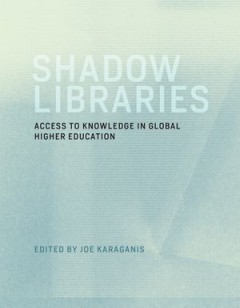
Shadow Libraries : Access to Knowledge in Global Higher Education
How students get the materials they need as opportunities for higher education expand but funding shrinks. From the top down, Shadow Libraries explores the institutions that shape the provision of educational materials, from the formal sector of universities and publishers to the broadly informal ones organized by faculty, copy shops, student unions, and students themselves. It looks at the his…
- Edition
- -
- ISBN/ISSN
- 9780262535014
- Collation
- 320 halaman
- Series Title
- -
- Call Number
- 370 SHA
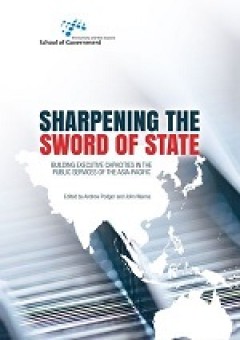
Sharpening the Sword of State : Building executive capacities in the public s…
Sharpening the Sword of State explores the various ways in which 10 jurisdictions in the Asia-Pacific enhance their administrative capabilities through training and executive development. It traces how modern governments across this region look to develop their public services and public sector organisations in the face of rapid global change. For many governments there is a delicate balance be…
- Edition
- -
- ISBN/ISSN
- 9781760460723
- Collation
- -
- Series Title
- -
- Call Number
- 352.669 POD s
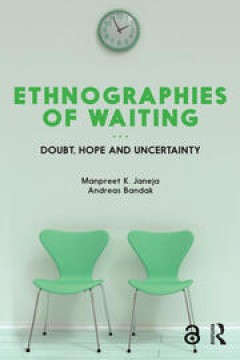
Ethnographies of Waiting
We all wait – in traffic jams, passport offices, school meal queues, for better weather, an end to fighting, peace. Time spent waiting produces hope, boredom, anxiety, doubt, or uncertainty. Ethnographies of Waiting explores the social phenomenon of waiting and its centrality in human society. Using waiting as a central analytical category, the book investigates how waiting is negotiated in m…
- Edition
- -
- ISBN/ISSN
- 9781003085317
- Collation
- -
- Series Title
- -
- Call Number
- 300

The Rhine and European Security in the Long Nineteenth Century
Throughout history rivers have always been a source of life and of conflict. This book investigates the Central Commission for the Navigation of the Rhine’s (CCNR) efforts to secure the principle of freedom of navigation on Europe’s prime river. The book explores how the most fundamental change in the history of international river governance arose from European security concerns. It exa…
- Edition
- -
- ISBN/ISSN
- 9780429326660
- Collation
- -
- Series Title
- -
- Call Number
- 306

A Christian Education in the Virtues: Character Formation and Human Flourishing
A Christian Education in the Virtues examines the connection between human nature and human flourishing. It draws on ancient and medieval sources to explore the formation of the person based on a Christian anthropology, emphasising the communal nature of the virtuous life and provides a richer approach to the question of contemporary character education. The book argues that the only way to und…
- Edition
- -
- ISBN/ISSN
- 9781000417111
- Collation
- -
- Series Title
- -
- Call Number
- 370
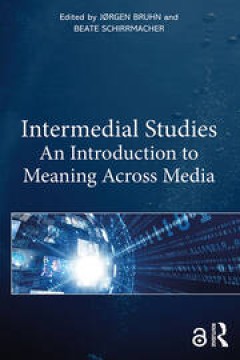
Intermedial Studies ; An Introduction to Meaning Across Media
Intermedial Studies provides a concise, hands-on introduction to the analysis of a broad array of texts from a variety of media – including literature, film, music, performance, news and videogames, addressing fiction and non-fiction, mass media and social media. The detailed introduction offers a short history of the field and outlines the main theoretical approaches to the field. Part I …
- Edition
- -
- ISBN/ISSN
- 9781003174288
- Collation
- -
- Series Title
- -
- Call Number
- 306
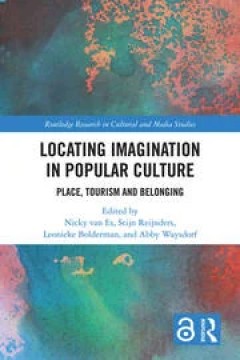
Locating Imagination in Popular Culture
Locating Imagination in Popular Culture offers a multi-disciplinary account of the ways in which popular culture, tourism and notions of place intertwine in an environment characterized by ongoing processes of globalization, digitization and an increasingly ubiquitous nature of multi-media. Centred around the concept of imagination, the authors demonstrate how popular culture and media are b…
- Edition
- -
- ISBN/ISSN
- 9781003045359
- Collation
- -
- Series Title
- -
- Call Number
- 370

The Royal Prerogative and Constitutional Law
This book examines the royal prerogative in terms of its theory, history and application today. The work explores the development of the royal prerogative through the evolution of imperial government, and more recent structural changes in the United Kingdom and elsewhere in the Commonwealth. While examining specific prerogative powers, the development of justiciability of the prerogative, an…
- Edition
- -
- ISBN/ISSN
- 9781003048718
- Collation
- -
- Series Title
- -
- Call Number
- 340

Exploring Greek Manuscripts in the Library at Wellcome Collection in London
This book offers new insights into a largely understudied group of Greek texts preserved in selected manuscripts from the Library at Wellcome Collection, London. The content of these manuscripts ranges from medicine, including theories on diagnosis and treatment of disease, to astronomy, philosophy, and poetry. With texts dating from the ancient era to the Byzantine and Ottoman worlds, each man…
- Edition
- -
- ISBN/ISSN
- 9780429470035
- Collation
- -
- Series Title
- -
- Call Number
- 306

Indigenous Religion(s) Local Grounds, Global Networks
What counts as 'indigenous religion' in today´s world? Who claims this category? What are the processes through which local entities become recognisable as 'religious' and 'indigenous'? How is all of this connected to struggles for power, rights and sovereignty? This book sheds light on the contemporary lives of indigenous religion(s), through case studies from Sápmi, Nagaland, Talamanca, …
- Edition
- -
- ISBN/ISSN
- 9781003021513
- Collation
- -
- Series Title
- -
- Call Number
- 306
 Computer Science, Information & General Works
Computer Science, Information & General Works  Philosophy & Psychology
Philosophy & Psychology  Religion
Religion  Social Sciences
Social Sciences  Language
Language  Pure Science
Pure Science  Applied Sciences
Applied Sciences  Art & Recreation
Art & Recreation  Literature
Literature  History & Geography
History & Geography